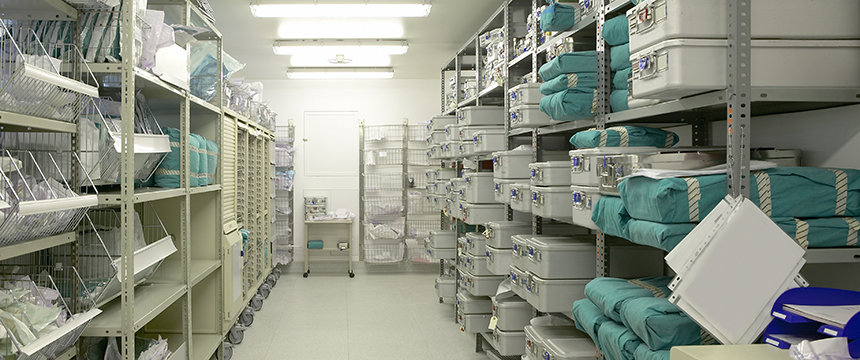Notification of Exemptions From FEMA Regulations Restricting Exports and Allocating Domestically Certain Scarce or Threatened Health and Medical Resources

The Federal Emergency Management Agency (FEMA) issued regulations effective April 7, 2020, that used the allocation authority under the Defense Production Act (DPA) to allocate to domestic use certain scarce or threatened health materials and directed the U.S. Customs and Border Protection (CBP) to detain export shipments of covered materials and to allow the export of all or part of such shipments only upon a determination by the Administrator of FEMA. To review our previous publication, click here.
The regulations provided for one exemption for export shipments pursuant to certain pre-existing agreements. On April 21, 2020, FEMA published in the U.S. Federal Register a notification of additional exemptions. The notification states that it applies beginning on April 17, 2020.
The Administrator of FEMA has determined that the following additional exemptions are necessary and appropriate to promote the national defense:
- Shipments to U.S. Commonwealths and Territories, Including Guam, American Samoa, Puerto Rico, U.S. Virgin Islands, and the Commonwealth of the Northern Mariana Islands (Including Minor Outlying Islands).
- Exports of Covered Materials by Non-profit or Non-governmental Organizations that are Solely for Donation to Foreign Charities or Governments for Free Distribution (Not Sale) at their Destination(s).
- Intracompany Transfers of Covered Materials by U.S. Companies from Domestic Facilities to Company-owned or Affiliated Foreign Facilities.
- Shipments of Covered Materials that are Exported Solely for Assembly in Medical Kits and Diagnostic Testing Kits Destined for U.S. Sale and Delivery.
- Sealed, Sterile Medical Kits and Diagnostic Testing Kits Where Only a Portion of the Kit is Made Up of One or More Covered Materials That Cannot be Easily Removed Without Damaging the Kits.
- Declared Diplomatic Shipments from Foreign Embassies and Consulates to their Home Countries. These May be Shipped via Intermediaries (Logistics Providers) but are Shipped from and Consigned to Foreign Governments.
- Shipments to Overseas U.S. Military Addresses, Foreign Service Posts (e.g., Diplomatic Post Offices), and Embassies.
- In-Transit Merchandise: Shipments in Transit through the United States with a Foreign Shipper and Consignee, Including Shipments Temporarily Entered into a Warehouse or Temporarily Admitted to a Foreign Trade Zone.
- Shipments for Which the Final Destination is Canada or Mexico.
- Shipments by or on behalf of the U.S. Federal Government, including its Military.
Exporters seeking exemptions covered by paragraphs (2), (3), (4), (8) and (9) must submit a letter to FEMA certifying the purpose of the shipment of the covered material, together with other documentation related to the shipment. The letter is to include a description of the exemption the exporter is claiming, provide details about the shipment to allow CBP and FEMA to determine that the shipment falls under the claimed exemption and an attestation to the best of the exporter’s knowledge that the information provided is true and accurate and that the exporter is aware that false information is subject to prosecution under the DPA. The letter should be submitted to FEMA via CBP’s document imaging system and placed on file with CBP.
The Administrator of FEMA reserved the right to waive any of these exemptions at any time and fully review the shipment of covered materials under the determination criteria set forth in the allocation regulations. In addition, if CBP believes that any manufacturer, broker, distributor, exporter, or shipper of any covered materials is intentionally modifying its shipments in a way to take advantage of one or more of these exemptions, diverting materials from the United States market, or otherwise trying to circumvent the FEMA review requirements in 44 CFR 328.102(b)1 through application of any of the exemptions, CBP may detain a shipment and forward information about that shipment (including the basis for CBP’s belief) to FEMA for determination.
If you would like a consultation on matters addressed by the rule or other related issues, please contact the author.
In addition, other members of Foley’s International Trade & National Security Practice also have extensive experience in these matters and can assist you with your issues, including:
- Gregory Husisian, Partner, Chair, International Trade and National Security, Government Enforcement Defense & Investigations Practice: [email protected] or 202.945.6149.
- Christopher Swift, Partner, International Trade and National Security, Government Enforcement Defense & Investigations Practice: [email protected] or 202.295.4103.
—————————————————-
1 (b) Procedures. U.S. Customs and Border Protection (CBP), in coordination with such other officials as may be appropriate, will notify FEMA of an intended export of covered materials. CBP must temporarily detain any shipment of such covered materials, pending the Administrator’s determination whether to return for domestic use or issue a rated order for part or all of the shipment, pursuant to the Administrator’s delegated authorities. The Administrator will make such a determination within a reasonable timeframe after notification of an intended export.